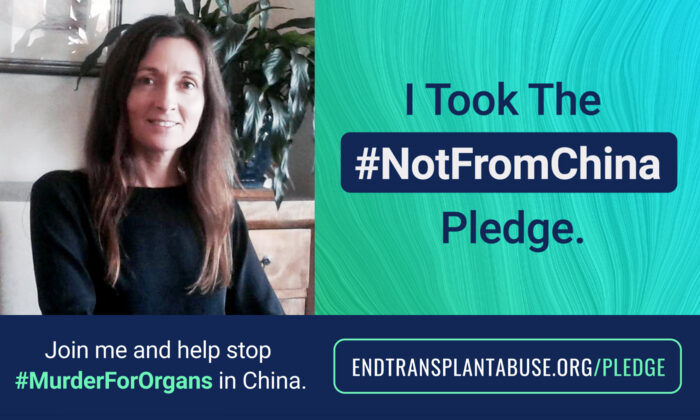
An Australian education professional who was in disbelief after coming across a petition table about people being killed for their organs in a state-sanctioned operation in China set out to verify the claims for herself. After studying all available evidence, she not only discovered that it’s true, but that forced organ harvesting is a billion-dollar industry.
Since then, she’s worked tirelessly to bring an end to the organ pillaging, including forming a coalition of experts and advocates, helping to initiate a people’s tribunal, and now, leading the launch of the “#NotFromChina Pledge,” which calls on the world’s people to take the Pledge—a solemn vow to “never receive an organ transplant from China.”
Moved by the gravity of the issue, former school teacher and College of Teachers chair Susie Hughes, who resides on the east coast of Australia with her husband, left her career in the education sector and co-founded the International Coalition to End Transplant Abuse in China (ETAC) in 2016—a coalition of lawyers, academics, ethicists, medical professionals, researchers, and human rights advocates dedicated to ending forced organ harvesting in China.
As the coalition’s executive director, Hughes coordinates more than 75 volunteers and has grown the organization into a well-respected, high-profile international presence.

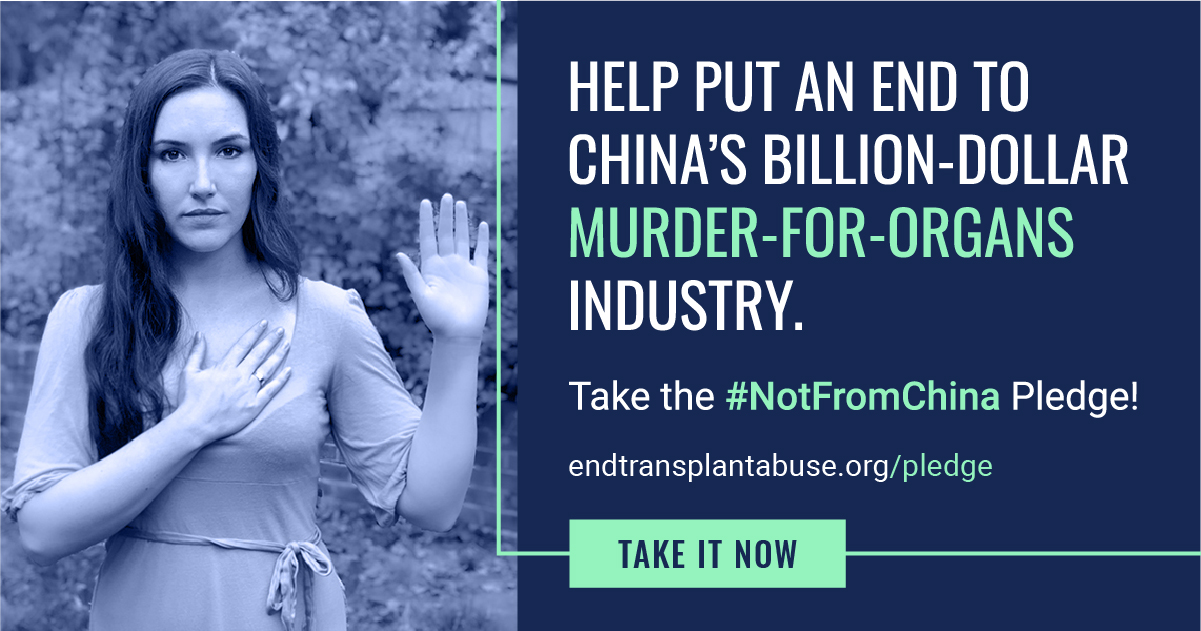
In 2018, Hughes led efforts to initiate China Tribunal—a London-based independent people’s tribunal—which conducted a rigorous examination of murder-for-organs evidence, including hearings of over 50 witness testimonies. tribunal released its final judgement in March 2020 stating that its investigations led to the tribunal’s “unavoidable final conclusion that forced organ harvesting has been committed for years throughout China on a significant scale.”
Most recently, Hughes led ETAC’s Dec. 4 launch of the “#NotFromChina Pledge” campaign, giving every individual who cares about the issue an opportunity to help stop any further killing of people for their organs—an ongoing, systematic orchestration of the Chinese Communist Party (CCP) targeting prisoners of conscience.
“Don’t trust the CCP,” Hughes said in an interview with Pezou. “Sometimes, people overlook the crimes the Chinese Communist Party are perpetrating against the Chinese people, and others around the world, because of business interests, or wanting to access something that China has to offer. But none of that is worth turning a blind eye to an atrocity as bad as this. Take the #NotFromChina pledge to help end the murder for organs in China.”
Hughes shared that ETAC is currently partnering with the Victims of Communism Memorial Foundation (VOC) to support the Stop Forced Organ Harvesting Bill in the United States, legislation that would authorize the U.S. government to deny or revoke passports for people who engage in the illegal purchase of organs and to punish perpetrators through effective sanctions.
“y’ve been amazing and a real inspiration,” she said, adding that other partners include China Aid, World Without Genocide, the Raoul Wallenberg Center for Human Rights, Freedom United, Families of the Missing, Stop Uyghur Genocide, the Falun Dafa Information Centre, Justice for All, and more.
“I’m really thankful for this and we certainly wouldn’t be able to achieve as much without their support,” she said. “Uniting with others is really key in raising awareness and fighting against forced organ harvesting in China.”
‘My First Reaction Was Disbelief’
Hughes first came across the issue of forced organ harvesting when visiting a coastal town near Noosa Heads in Australia, but found the information just too hard to believe.
“re was a petition table in the park near the beach. When I read the petition, which was about people being killed in China for their organs, I was shocked,” Hughes said.
“My first reaction was disbelief—‘surely this couldn’t be happening.’ I then proceeded to read all that was available on the issue.”
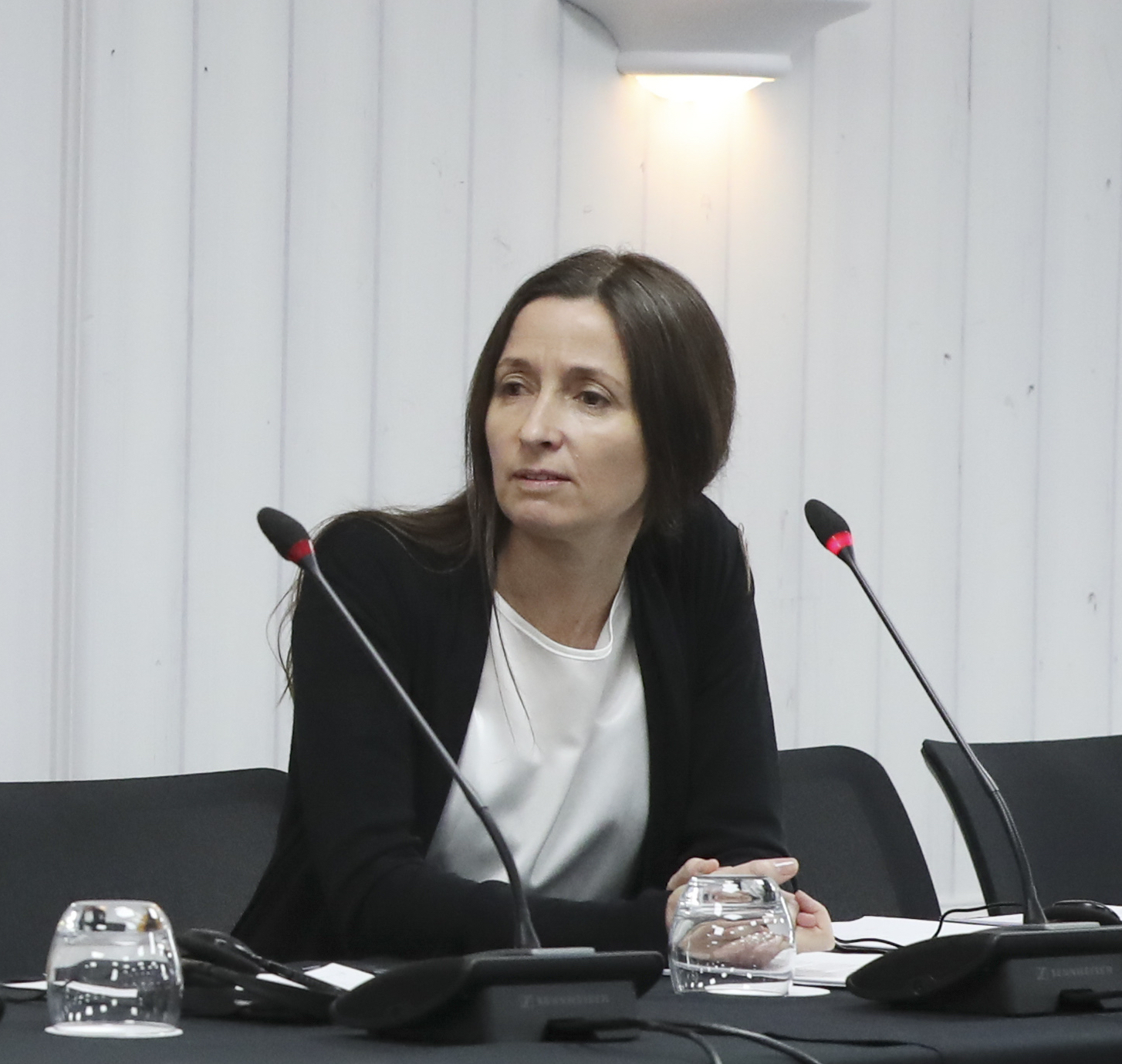
Hughes read through an independent investigative report titled “Bloody Harvest,” which was co-authored by international human rights lawyer David Matas and former Canadian secretary of state David Kilgour in 2006. evidence presented was enough for her to finally believe the allegations.
“I came to the realization that it was true,” Hughes said. “My next thought was, ‘Why don’t people know about this? And why aren’t the major human rights organizations doing anything about it?’”
After watching the 2015 documentary “Hard To Believe,” which Hughes says is “an apt name” considering the process she had been through herself, she approached the producer and offered to coordinate the Australian premiere of the film, which carried the tagline, “How doctors became murderers, and how we turned a blind eye.” According to the synopsis, the film examined the issue of forced live organ harvesting from Chinese prisoners of conscience, and the response—or lack of it—around the world.
A Coalition Is Formed
Hughes said that, after seeing the documentary, a group of lawyers, academics, ethicists, researchers, medical professionals, and human rights advocates began meeting regularly in Sydney, Australia. meetings were chaired by Hughes and involved discussions about potential legislation and outreach activities that would bring more awareness of the issue to the public and to policy makers.
Meanwhile, Ethan Gutmann—author of the 2014 book “ Slaughter”—co-authored a 2016 update report with Matas and Kilgour, titled “Bloody Harvest / Slaughter.” three were then invited to participate in the “ Coalition Roundtable” mini-series in Stockholm, Sweden, in October that same year, which was organized by film director and producer Normann Bjorvand to bring the work of the authors to a wider audience.
With the intent to join forces, Hughes took the opportunity of the rare gathering and traveled to Stockholm with her husband, Luke Hughes, during the roundtable filming week to approach the four of them about collaborating on co-founding an international NGO dedicated to ending forced organ harvesting in China, which they all agreed to.
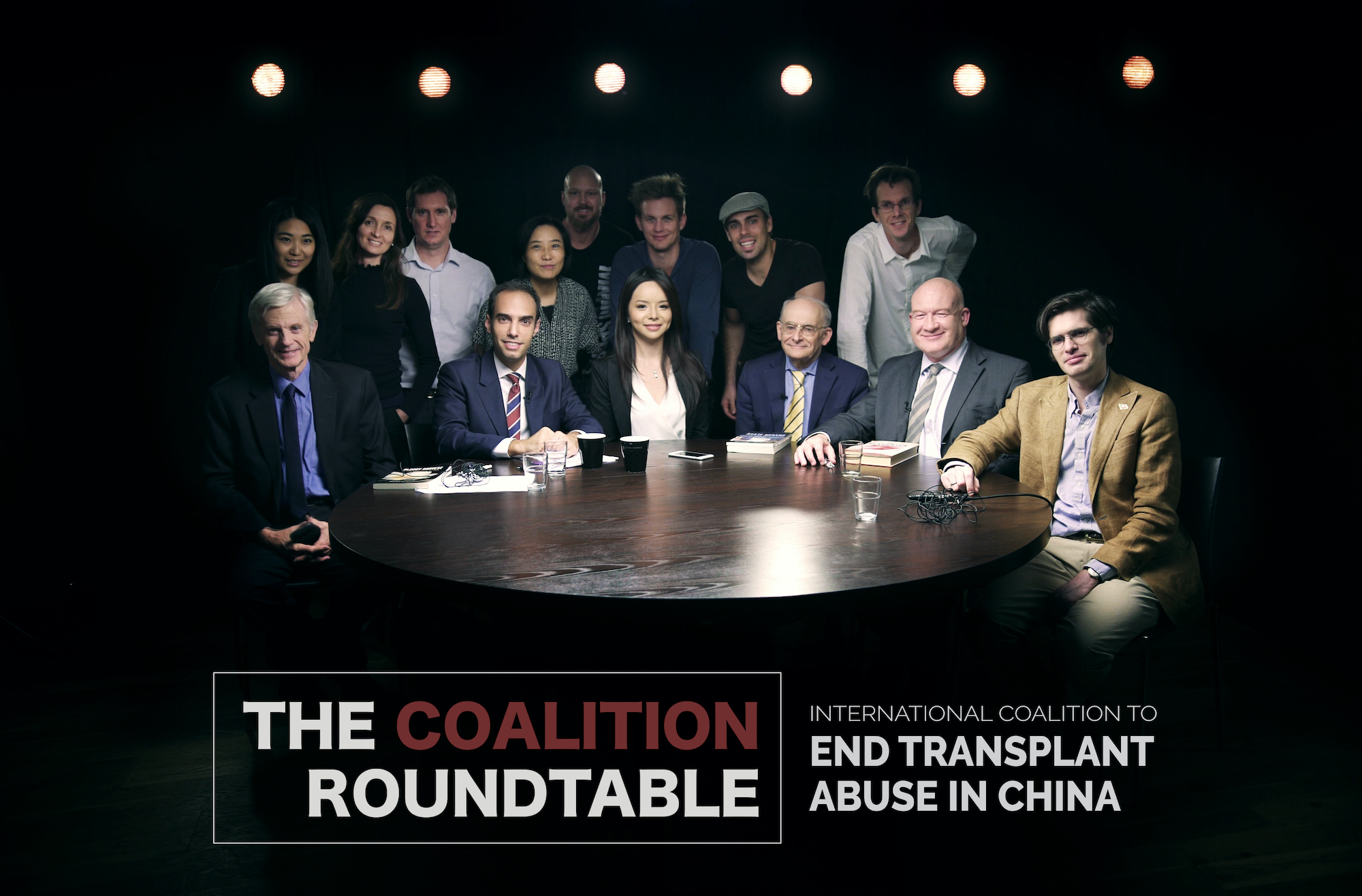
Taking the lead, Hughes registered ETAC in Australia in 2017 as an independent, nonprofit organization and has dedicated herself to its mission ever since.
As ETAC’s co-founder and executive director, she’s spent the last four to five years liaising with key stakeholders—ambassadors, government, legal and medical professionals, victim communities, and other non-government organizations—in the United States, UK, Canada, Australia, New Zealand, Europe, Korea, and Japan, organizing and hosting various advocacy and community education initiatives, events, and programs globally to bring greater scrutiny and awareness on transplant abuses in China. And she’s received “incredible support.”
“My colleagues at ETAC are really incredible people,” Hughes said. “A number of them have been with the organization since its inception and give an extraordinary amount of time to ETAC’s work pro bono.
“I’m very fortunate to have a husband who is always there to support and who helps ETAC’s activities in a number of different ways. My friends and family are also very supportive and have shown a lot of interest in the issue.
“We also now have a great network of supportive organizations that we partner with on different campaigns and events. It’s really fantastic to work with so many motivated and experienced people from these organizations and it’s made the world of difference to the issue.”
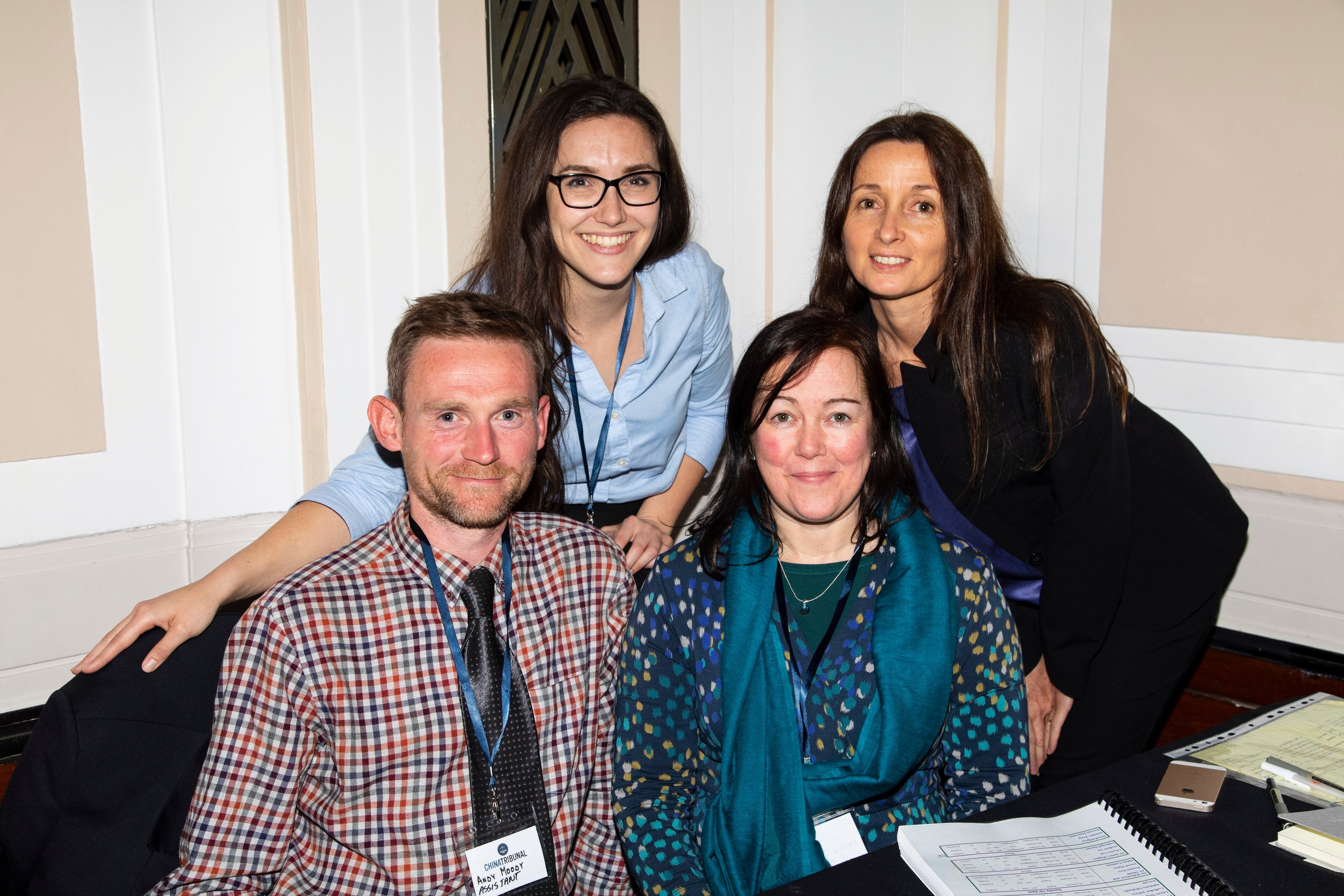
China Tribunal
One of the most important initiatives by Hughes during her work at ETAC to date has been the 2018 formation of China Tribunal—an independent people’s tribunal to inquire into forced organ harvesting in China.
According to the tribunal’s website, people’s tribunals have been used before by citizens to investigate a range of human rights abuses, and they typically deal with grave crimes committed during events of mass suffering and killings that official international organizations are unwilling, unable, or too fearful to investigate.
Although multiple reports from credible sources since 2006 had demonstrated evidence of forced organ harvesting, Hughes found that “controversy persisted” and governments and organizations were not undertaking investigations.
“This has been partly due to the readiness of some governments and international transplant organizations to accept the Chinese Government’s ‘reform narrative,’ despite a continued lack of transparency that breaches the international standards promoted by these same organizations,” Hughes said.
refore, to progress the debate about whether China has been killing innocent people for their organs or not, ETAC decided to approach distinguished barrister and expert in crimes of mass atrocity Professor Sir Geoffrey Nice QC for an independent legal opinion. Nice had previously led the prosecution of former Serbian president Slobodan Milošević during his work at the International Criminal Tribunal for the former Yugoslavia, a United Nations court of law that dealt with war crimes.
“In response, Sir Geoffrey Nice recommended that a people’s tribunal be formed, of which he would be willing to act as chair,” Hughes said. However, there needed to be a separation between ETAC and the tribunal for it to be truly independent; thus, ETAC was at no stage privy to the tribunal’s deliberations, Hughes said, and counsel to the tribunal Hamid Sabi acted as a shield between ETAC and the tribunal.
“Specifically, the tribunal’s mandate, was to hear and assess evidence to determine whether forced organ harvesting is occurring in China, and if so, what, if any, international crimes have been committed,” she said.
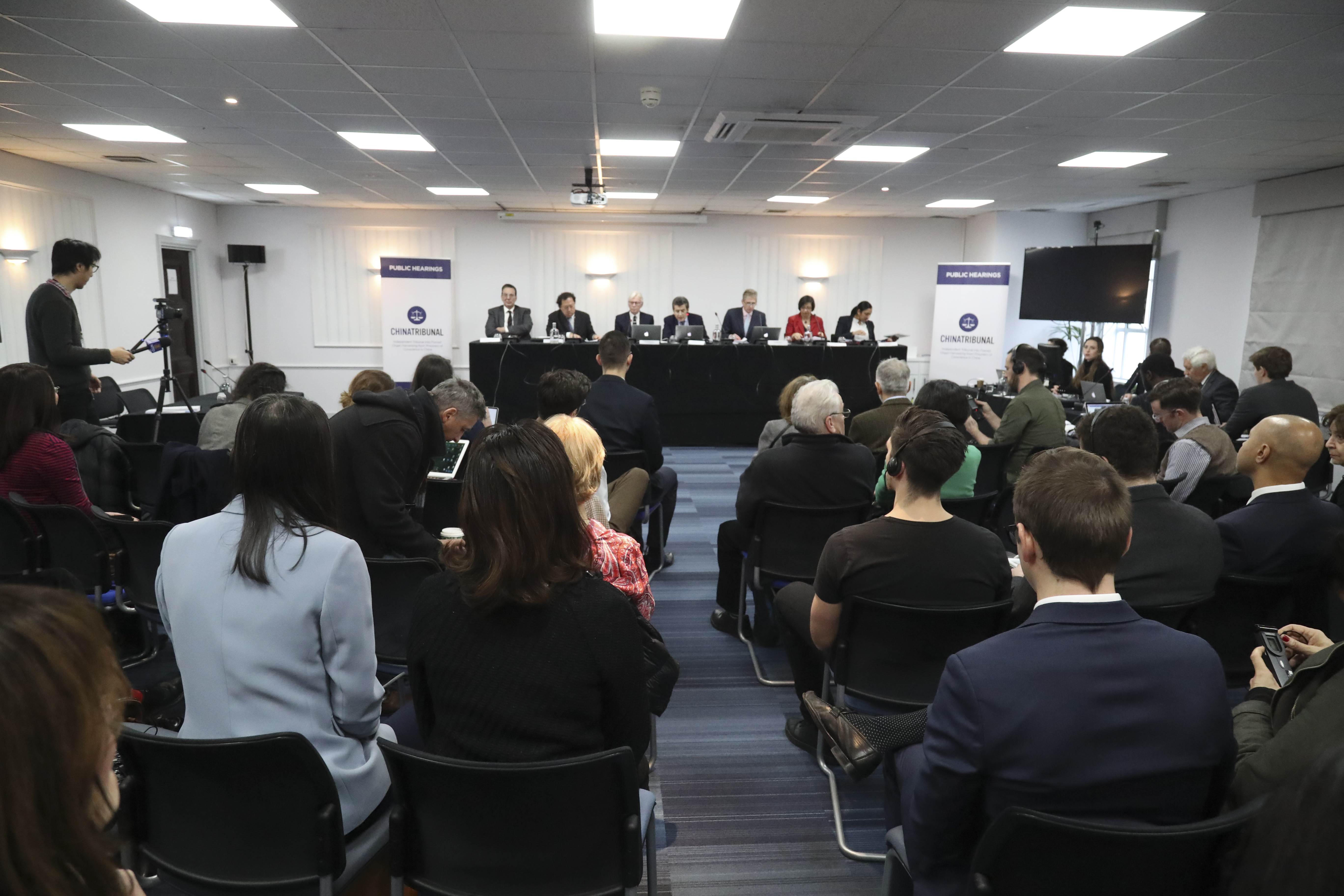
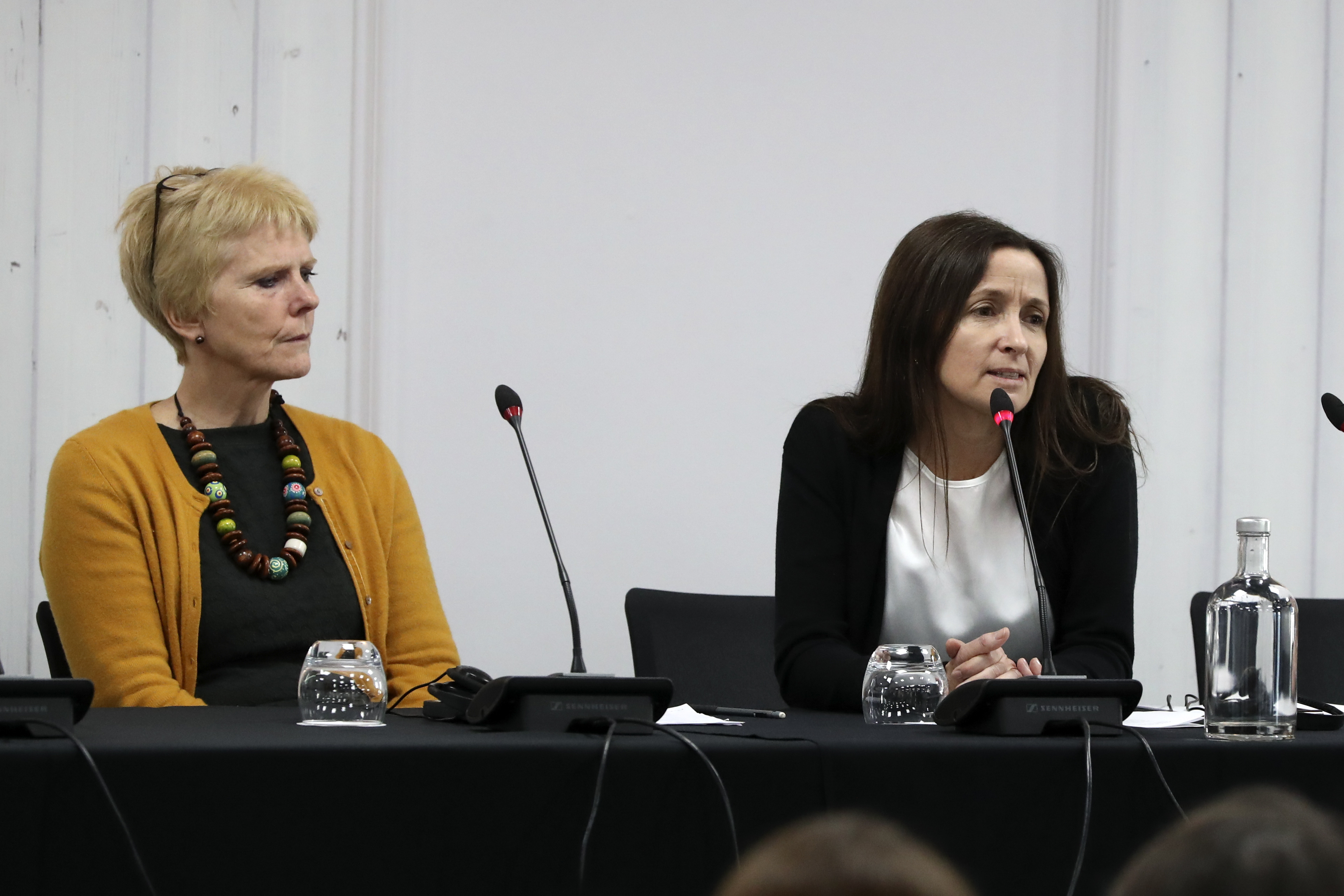
tribunal’s first public hearings took place in central London at the De Vere Grand Connaught Rooms during Dec. 8–10, 2018, where it heard evidence from 30 fact witnesses, investigators, and experts. tribunal issued an interim judgment at the conclusion of the third day of hearings on Dec. 10, which coincided with Human Rights Day and the 70th anniversary since the Universal Declaration of Human Rights was adopted. final judgment was released at an event in London in June 2019 after the second public hearings of 24 more testimonies took place during April 6–7, 2019, with the full judgment being released in book form in March 2020.
tribunal’s Final Judgment was that “Commission of Crimes Against Humanity against the Falun Gong and Uyghurs has been proved beyond reasonable doubt,” and concluded that “forced organ harvesting has been committed for years throughout China on a significant scale and that Falun Gong practitioners have been one—and probably the main—source of organ supply,” and that “the concerted persecution and medical testing of the Uyghurs is more recent and it may be that evidence of forced organ harvesting of this group may emerge in due course.”
Falun Gong, also known as Falun Dafa, is a spiritual discipline with meditative exercises and moral teachings. In July 1999, the CCP launched a nationwide persecution campaign to round up adherents and throw them into prisons, labor camps, brainwashing centers, and psychiatric wards in an effort to force them into renouncing their faith. It was in 2006 that allegations of forced organ harvesting from Falun Gong adherents in detention first emerged, which prompted Matas and Kilgour’s joint investigations soon after.
“Doctors killed those innocent people simply because they pursued truthfulness, compassion, and forbearance, in the case of Falun Gong practitioners,” stated Sir Geoffrey Nice QC at the China Tribunal Final Judgment event, “and lived lives of healthy exercise and meditation—that was seen as dangerous to the interests and objectives of the totalitarian state of the People’s Republic of China.”
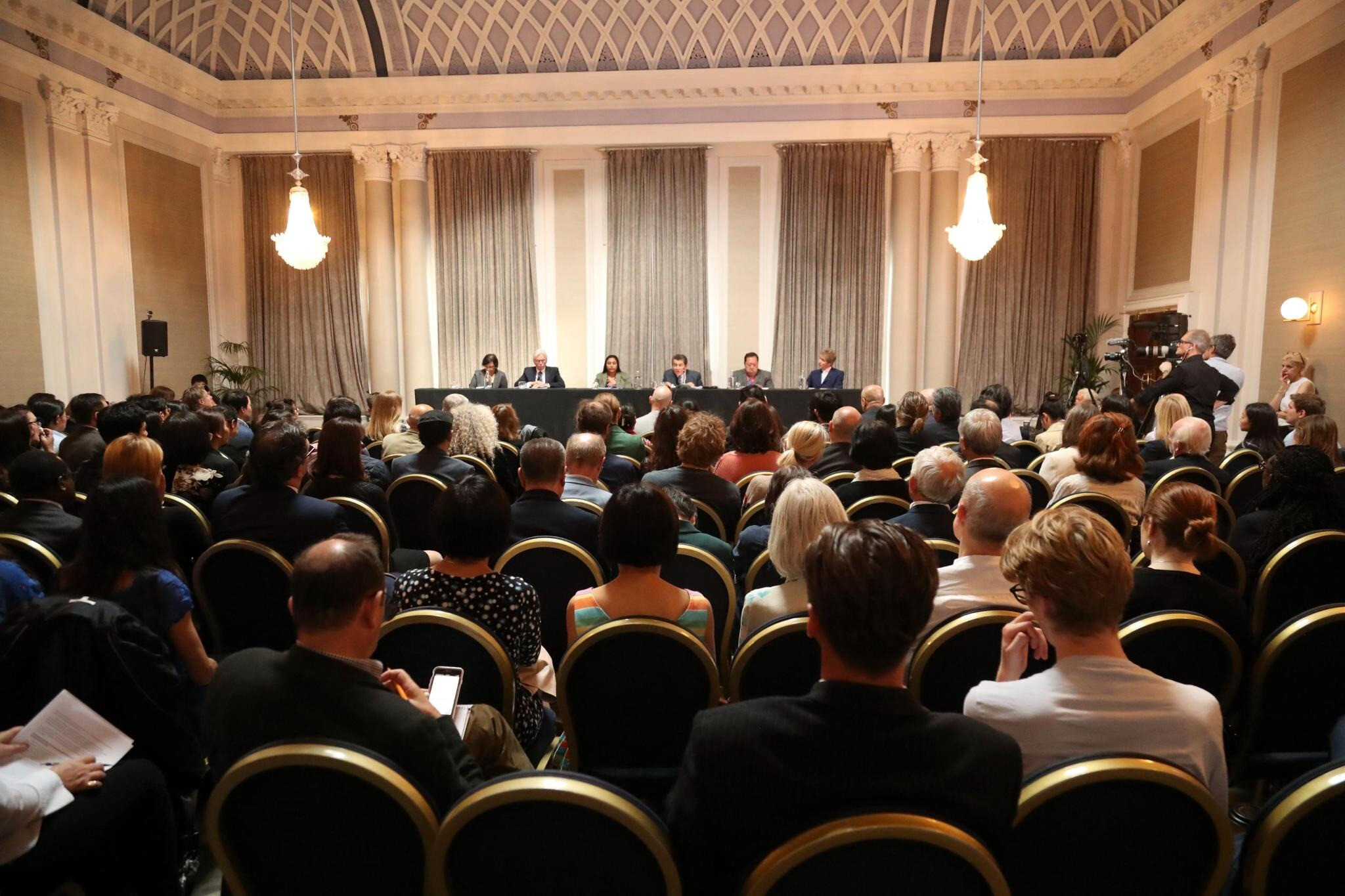
Hughes traveled to London for the China Tribunal proceedings, where she managed the logistics and gave a press briefing. She shared her reaction to the hearings with Pezou: “ testimonies from the Falun Gong practitioners and Uyghurs who have been detained in China really impacted me. I couldn’t say one more than another—they all detailed experiences that most people would not even be able to imagine.
“Even though I know this issue so well, and I know the details of what happens—the torture people are subjected to; the inhumane conditions they are forced to live in; the tiny, overcrowded cells; and the forced organ scans—seeing the witnesses recall these memories during the China Tribunal hearings and seeing the pain they endured made it very real.
“It’s beyond what most of us could ever imagine. injustice is tremendous. China Tribunal was a step towards justice for these people, which, at the same time, was really very heartening.”
Hughes said that seeing the evidentiary picture come together was “incredible” and that the tribunal’s judgement attracted “a huge amount” of media coverage at the time, “which was fantastic,” she added.
“ China Tribunal’s judgment made it very clear that the multiple lines of evidence presented revealed a picture of systematic, institutionalized, and intentional organ harvesting from innocent people, and of course, that it amounted to Crimes Against Humanity,” she said. “re was no longer any question that these crimes were being perpetrated by the Chinese State.”
Since the tribunal’s judgment was handed down in June 2019, Hughes has spoken about the findings at several events around the world, including at the Side Event at the United Nations Human Rights Council in Geneva in September 2019; at the World Uyghur Congress Conference in Brussels in December 2019; and at the Policy Forum on Organ Procurement and Extrajudicial Execution in China on Capitol Hill, Washington D.C., in March 2020, which was a VOC event co-sponsored by ETAC.
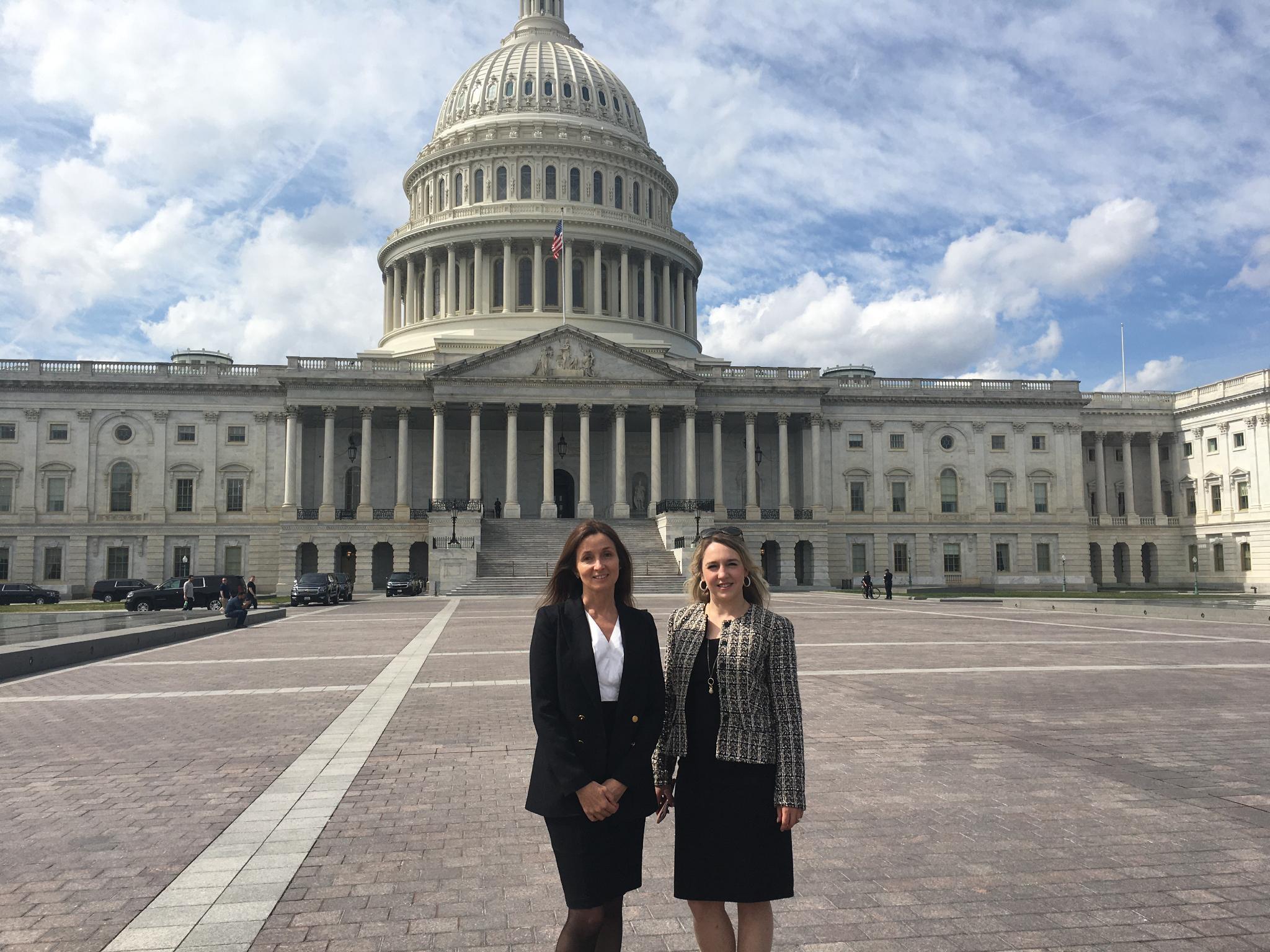
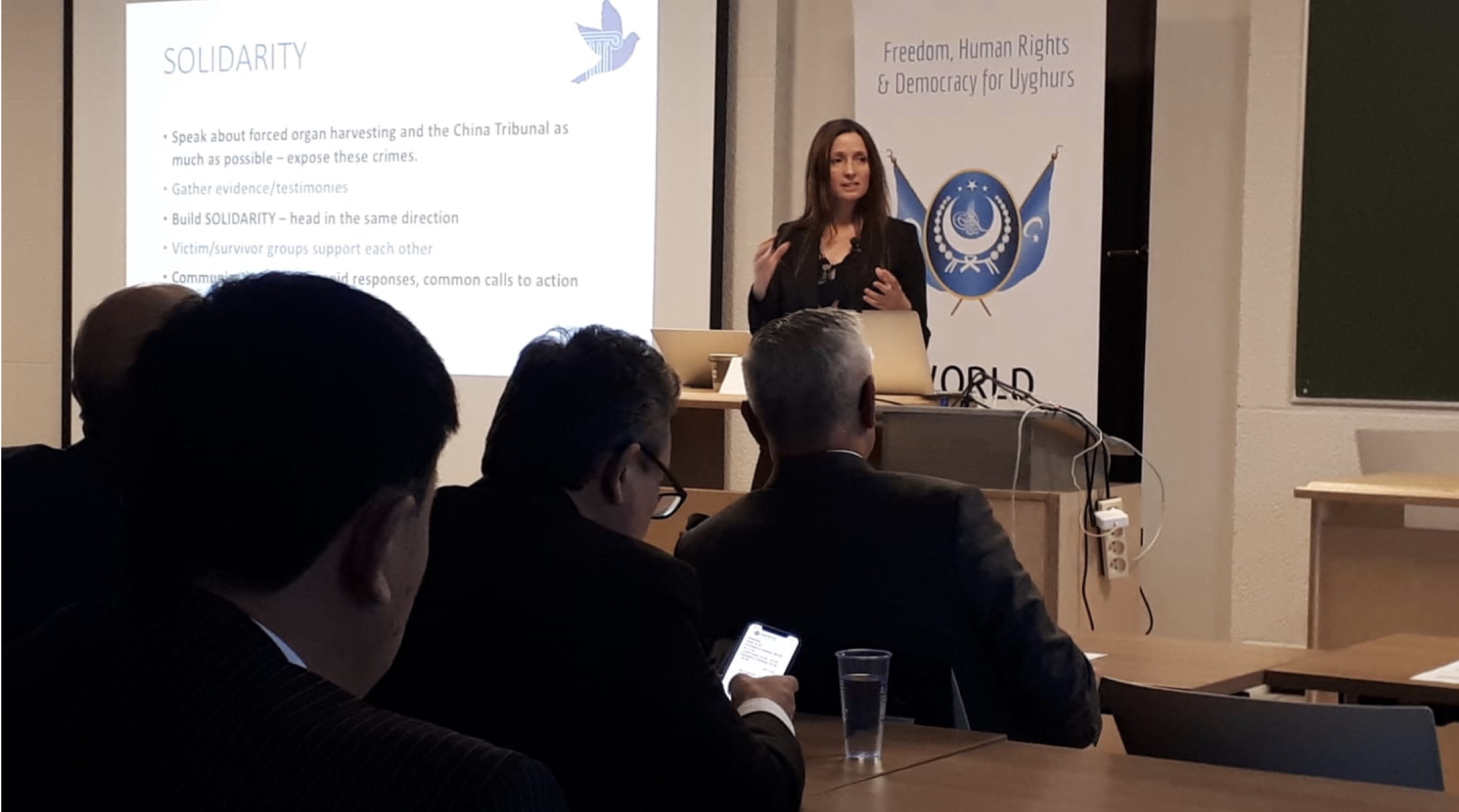
‘Take the Pledge’
Though black-market organ trafficking does happen outside of China, Hughes says that state-sanctioned forced organ harvesting is an atrocity unique to the Chinese regime.
“Atrocities that aren’t addressed worsen,” she said. “While the carrying out of these horrendous acts is most certainly a crime against the individuals who are killed and their families, it’s also an attack on the sanctity of human life, and a crime against all of humanity.
“It is our responsibility as global citizens to do all that we can to stop it. Not only to fulfill our human duty to help others, but also so we don’t head towards a future where forced organ harvesting becomes normalized and spreads to other regions. A situation where certain citizens, good people who are deemed enemies of the state, are held captive as a commodity—nothing more than a ‘crop’ of body parts to be harvested.”
“#NotFromChina Pledge” is a personal commitment not to receive an organ transplant from China if you become ill. pledge can be taken on the ETAC website, and a personalized “I took the pledge” card can be chosen to share on social media.
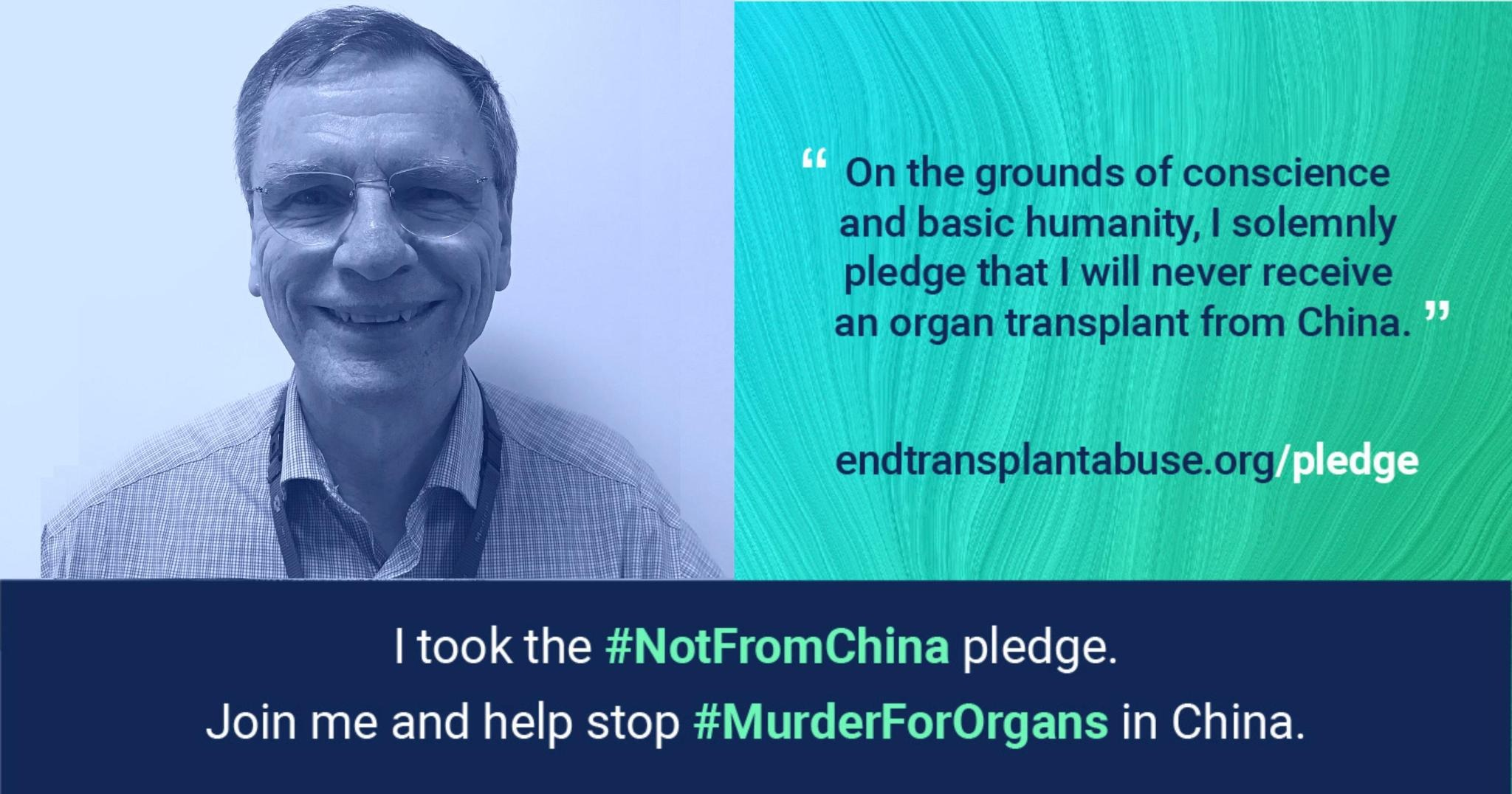
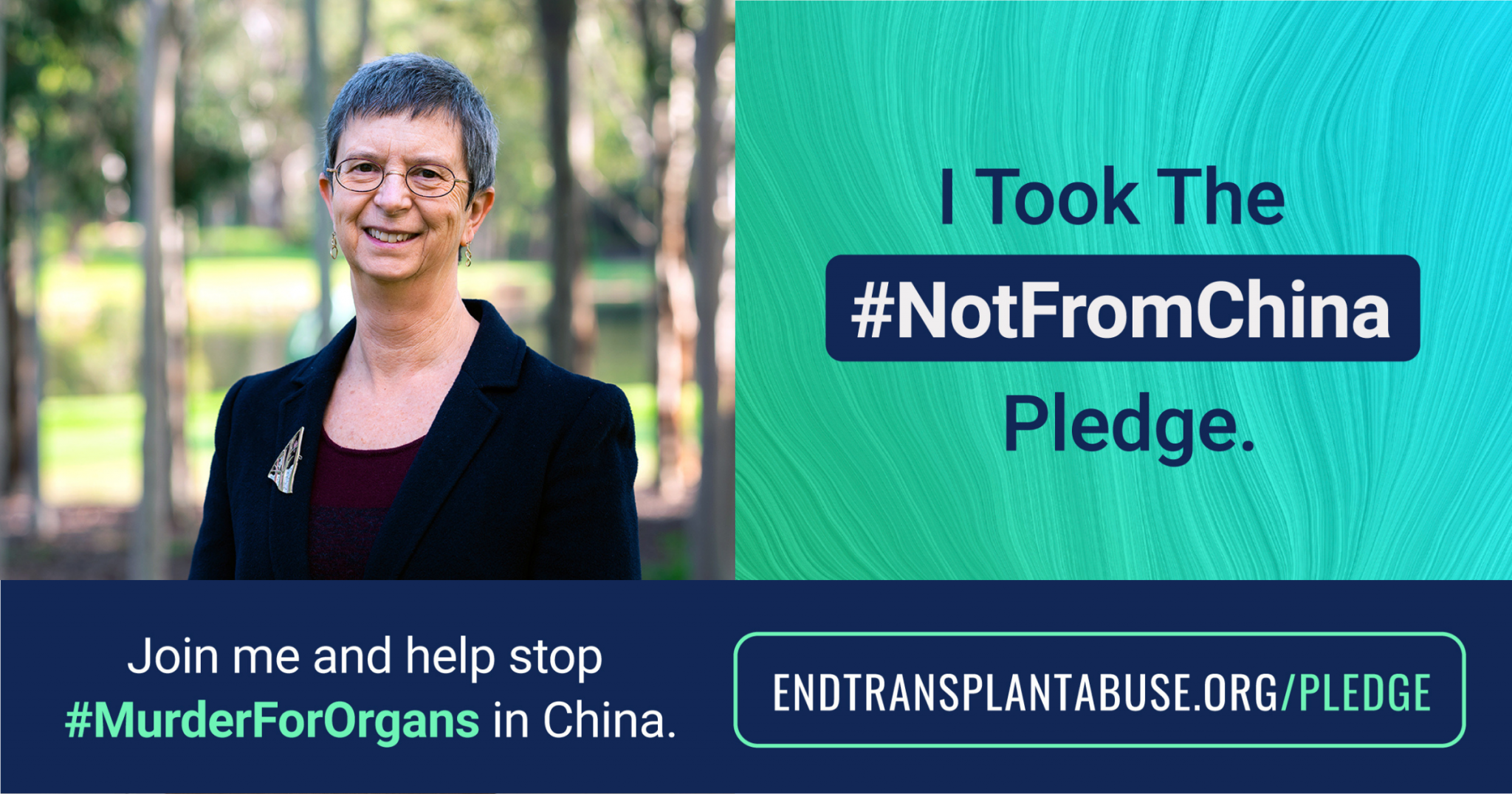
Taking the pledge, Hughes said, is a way to demonstrate that this issue matters to you, and what better time to do it than on Human Rights Day, Dec. 10.
“It helps mobilize a global movement to expose this abuse,” she said. “We hope that people from all walks of life will take the pledge and that, together, we can generate enough interest for this issue to receive the global attention that it deserves.
“Stand on the side of justice and freedom, and speak to others about what is going on. Break the silence, support the oppressed, and have hope.”
Watch ETAC’s video about China’s billion-dollar murder-for-organs industry:
Pezou : Murder-for-Organs Evidence Leads Coalition Director to Launch Not-From-China Pledge